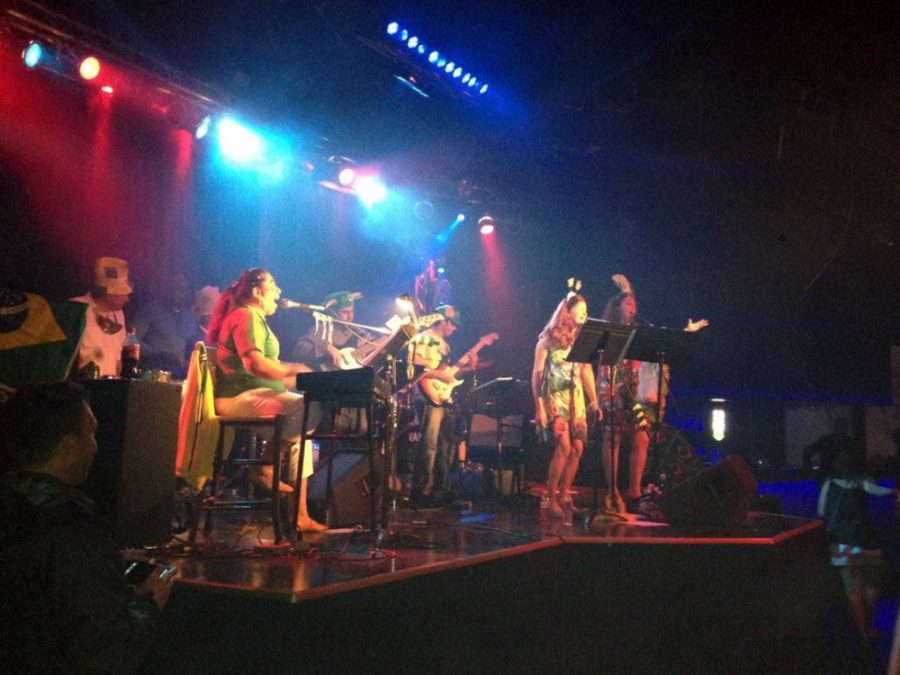Brazilian culture will be in the spotlight this Saturday at the annual Brazilian Carnaval, mixing age-old traditions with contemporary celebration through music, dance and costumes.
Held at Club XS, the celebration starts at 9 p.m. and, in traditional carnaval style, will continue through the early hours of the morning. The Brazilian Carnaval in Tucson has been an annual event for over 30 years and attracts attendees with all different backgrounds.
The tradition of carnaval is celebrated in multiple ways by the people of Brazil. Tucson’s Brazilian Carnaval event is modeled after the club experience. The event will have traditional foods and drinks, a costume contest and a lot of music and dancing.
Sambalanço, a Tucson-based Brazilian band and regular feature at the carnaval festivities, will be providing live music throughout the night. The music aspect of carnaval is meant to provide a happy, fun, carefree environment and to make those in attendance get up and start dancing.
“Sambalanço plays carnaval-related songs that are all very lively,” said Sandra Klinger, one of the organizers of Tucson’s Brazilian Carnaval. “It’s always happy music talking about carnaval experiences — it’s good music to dance to.”
Klinger used to be a background singer for Sambalanço, but this past year, she wanted to put all of her focus in organizing the event, so she is currently taking a break from the band.
Music and dancing are integral parts of the Brazilian culture. For Sambalanço member Bill Martinez, it is the primary reason he became involved in Tucson’s Brazilian community.
“I’m not Brazilian, but I got into Brazilian music at an early age,” Martinez said. He has also helped organize the Brazilian Carnaval event.
After meeting a fellow musician who was a part of the Brazilian music scene, Martinez said he continued to fall in love with the unique style and rhythm.
“In Latin music, there are certain steps for cha cha or mambo, but in carnaval, you just move and have a great time,” Martinez said.
The tradition of the Brazilian Carnaval celebration is hundreds of years old. It is an integral part of the nation’s culture and is tied to its religious beliefs. A large majority of the population practices some form of Christianity and embraces the Lenten traditions of giving up certain pleasures during the 40 days before Easter. Brazilian Carnaval, in all of its exuberance and splendor, is held right before this month-long fast, similar to the tradition of Mardi Gras in New Orleans.
Brazilian Carnaval takes over the country from the Friday before Lent to Ash Wednesday.
The biggest celebration occurs in Rio de Janeiro where the entire city becomes one gigantic party for a little less than a week. There are parades, samba groups, performing arts shows, float competitions, costume contests and an abundance of Brazilian culture.
Using the traditional festival as inspiration, the Tucson Brazilian Carnaval is a celebration of culture through music, art and festivities. Tickets will be sold at the door for $12 or $10 for those in costume, and they can be purchased ahead of time at Antigone Books for $10. In the past, the event has had as many as 500 attendees.
“It’s an opportunity to get the taste of being in carnaval in Brazil,” Klinger said. “It’s very unique and it’s a lot of fun.”
_______________
Follow Victoria Pereira on Twitter.









